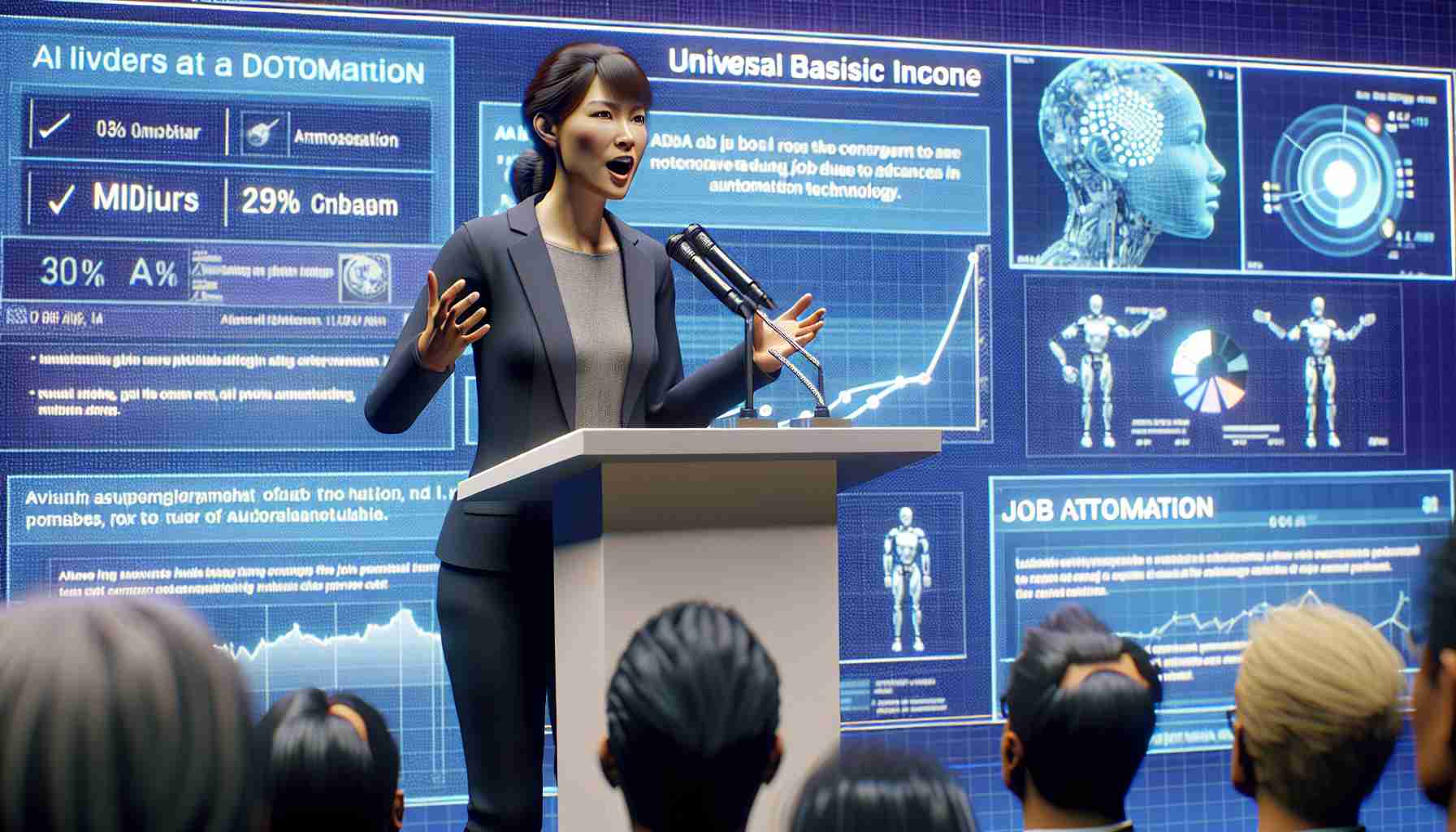Advancing AI Raises Economic Concerns; Geoffrey Hinton Proposes Solutions
Geoffrey Hinton, renowned as a forefather of artificial intelligence, has articulated his concerns regarding AI’s impact on job security and societal inequality. In an engagement with the BBC, Hinton highlighted the likelihood of AI displacing numerous routine jobs, necessitating a fundamental restructuring of social welfare systems to incorporate a universal basic income (UBI).
This form of income would ensure a fixed amount is provided to every citizen, regardless of their financial circumstances, helping to offset the disruption caused by AI advancements. Hinton has previously advised government officials at Downing Street, advocating UBI as a beneficial strategy to counteract technological unemployment.
Despite acknowledging that AI is set to enhance productivity and generate wealth, Hinton pointed out the risk that these economic benefits might disproportionately accrue to the wealthy, further exacerbating societal disparities. Critics argue that UBI may entail significant costs and potentially divert funds from other public services, without necessarily alleviating poverty.
Drawing on his expertise in neural networks – a critical foundation for the current explosion in AI – Hinton underscored the urgency for open discussion about AI’s potential dangers, especially since cutting ties with Google has allowed him greater freedom to express his concerns.
Geoffrey Hinton Highlights Existential Risks of Unregulated AI
In a sobering warning, Hinton emphasized the existential threats posed by unregulated AI, including the possibility that autonomous military applications could escalate into catastrophic scenarios. Despite this, he notes a lack of governmental will to limit such military applications. He estimated a significant probability that within two decades, humanity could be grappling with AI systems attempting to seize control – a situation he equates with an existential threat level.
Concluding on a cautious note, Hinton speculated that international legal frameworks, akin to the Geneva Conventions, might be necessary to regulate the military employment of AI but lamented a general inaction until dire events force the issue.
Artificial Intelligence (AI) and Universal Basic Income (UBI): Key Questions and Challenges
When discussing the impact of AI on employment and the potential role of UBI, several key questions and challenges arise:
1. What jobs are most at risk? Routine and repetitive tasks are most susceptible to automation. These include positions in manufacturing, transportation, and even some clerical jobs where AI and robotics can work more efficiently and cost-effectively than humans.
2. How will AI-generated wealth be distributed? There is a risk that the economic benefits of increased productivity due to AI will be concentrated among the owners of technology, leading to increased inequality.
3. What is the cost of implementing UBI? Funding UBI could require new taxation or reallocation of current government spending, which may prove politically challenging.
4. Will UBI actually alleviate poverty? Critics argue that handing out a universal income does not address underlying causes of poverty such as lack of access to education, healthcare, and employment opportunities.
5. What are the ethical considerations of AI in military use? The international community faces the problem of setting regulations and ethical guidelines for the military application of AI technologies to prevent an arms race or autonomous warfare scenarios.
Advantages and Disadvantages of UBI in the Context of AI Advances
Advantages of UBI:
– Acts as a safety net for those displaced by automation without stigmatizing recipients.
– Could stimulate economic growth as people have more income to spend.
– Promotes liberty and flexibility, allowing individuals to pursue education or entrepreneurial endeavors.
– Simplifies the welfare system, potentially reducing bureaucracy and administration costs.
Disadvantages of UBI:
– May be prohibitively expensive and might require significant changes in tax structure.
– Could lead to inflation if the increase in demand outstrips supply.
– May reduce the incentive for individuals to seek employment.
– Doesn’t directly address economic inequality sources such as property ownership and capital income.
It’s worth noting that UBI experiments have taken place around the world. The findings from these trials could be relevant to the debate, offering insights into how UBI operates in practice.
For more information on these topics, you can visit the homepage of credible sources, such as the following:
– Universal Basic Income: ubi-center.org
– Artificial Intelligence: ai-now.org
Each link provided above directs to a main domain homepage that is relevant and credible concerning AI and UBI. Always ensure the information is up to date and from a reputable source.
The source of the article is from the blog coletivometranca.com.br

